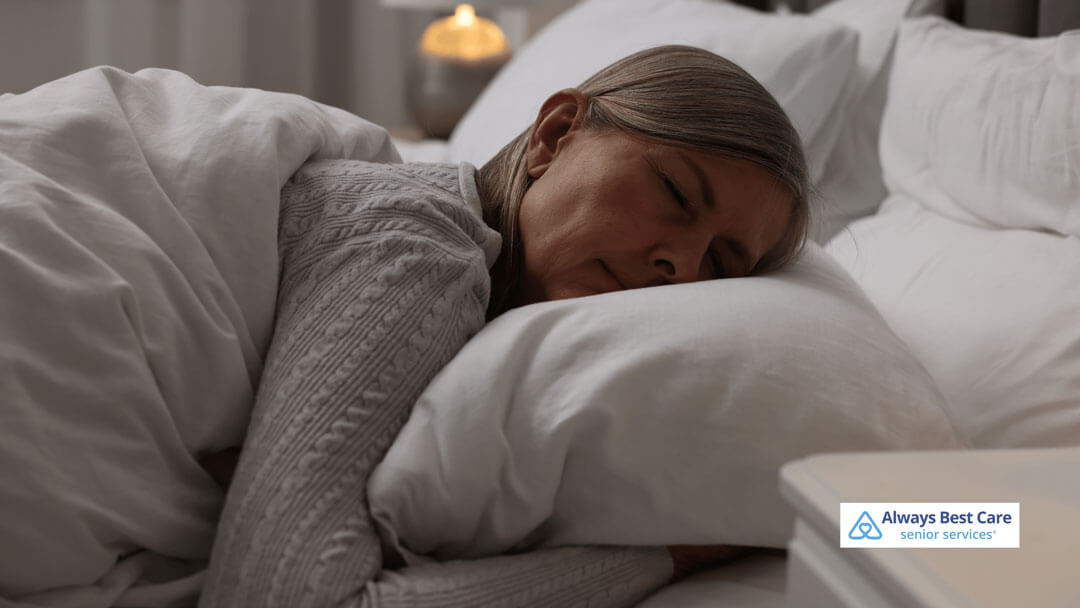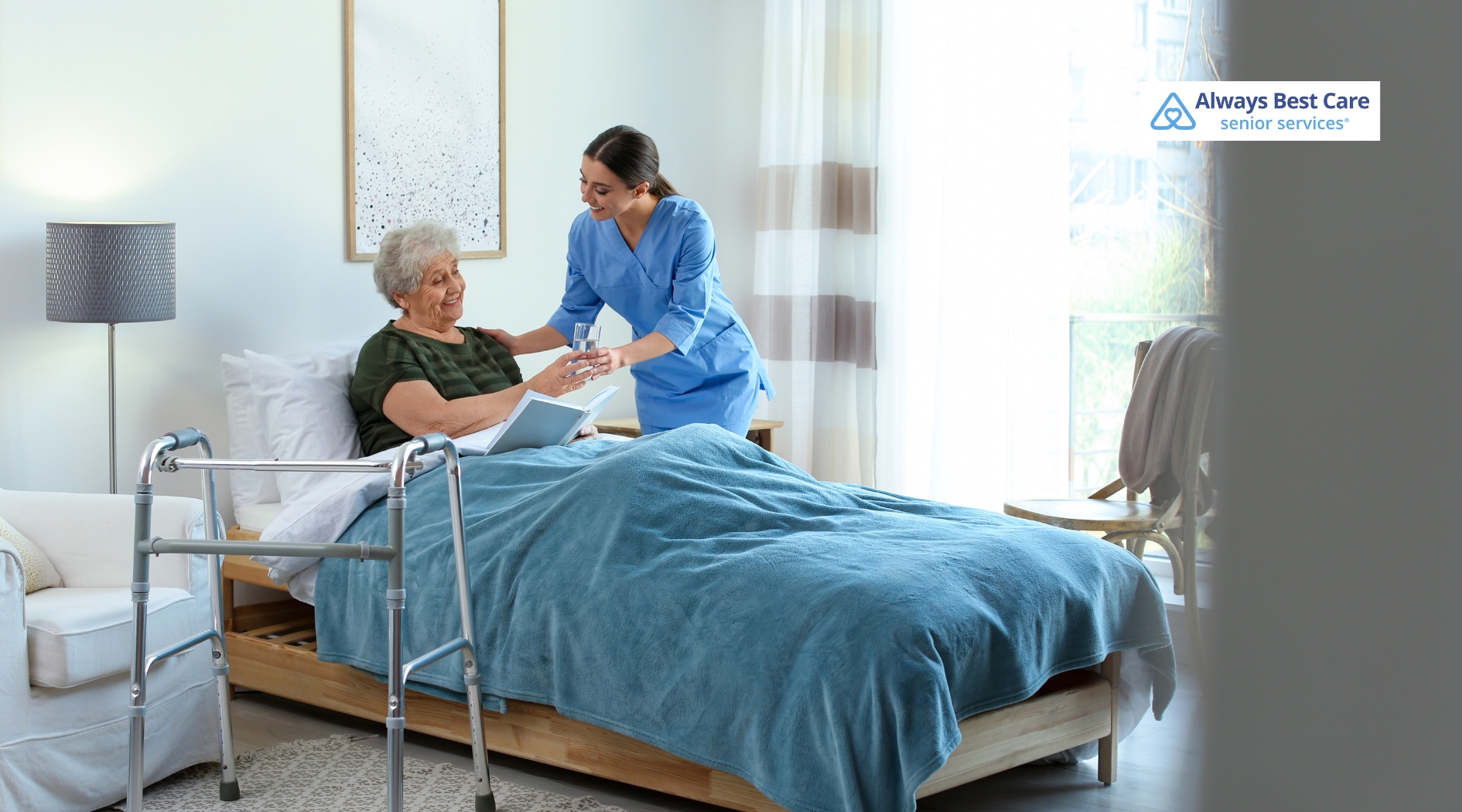Sleep Well: Top Tips for Seniors Seeking Better Rest

Getting a good night’s sleep is essential for seniors. As we age, our bodies experience changes that can make quality sleep harder to achieve.
However, there are practical ways to improve rest, promoting overall health and well-being.
Seniors can enjoy deeper, more restorative sleep by making a few adjustments. Here are some proven tips to help seniors rest better.
Table of Contents
Why Quality Sleep is Important for Seniors
Quality sleep is essential for seniors as it is vital to overall health and well-being.
Sleep patterns tend to change as we age, often resulting in lighter and more interrupted sleep. However, the body still needs restorative sleep to function properly. Good sleep helps support memory retention, cognitive function, and emotional stability.
It also aids in the body’s ability to heal and repair itself, strengthening the immune system and reducing the risk of illness.
For seniors, poor sleep can exacerbate health conditions like high blood pressure, diabetes, and heart disease. It may also lead to increased falls, mood changes, and difficulty concentrating.
Prioritizing quality sleep is key to improving physical and mental health, thus promoting a more active and engaged lifestyle. With better sleep, seniors can maintain their independence and enjoy a higher quality of life.
Adjusting Your Diet for Improved Sleep
What we eat directly affects how well we sleep, and for seniors, making small dietary adjustments can lead to better rest. A balanced diet supports overall health, but certain foods and habits are particularly beneficial for improving sleep quality.
Here’s how seniors can adjust their diet for a more restful night:
Incorporating Sleep-Friendly Foods
Adding foods rich in nutrients that promote relaxation can help seniors unwind before bed.
Almonds contain magnesium, and warm milk or herbal teas, which have calming effects, are excellent options for promoting sleep.
Avoiding Heavy Meals before Bed
Large or rich meals late in the day can cause discomfort, indigestion, or heartburn, making it harder to fall asleep.
Seniors should aim to have their last meal a few hours before bedtime to allow for proper digestion.
Limiting Caffeine Intake
Caffeine is a known stimulant that can keep you awake and alert long after consumption. Seniors should avoid coffee, tea, and other caffeinated drinks in the afternoon and evening to prevent disrupted sleep.
Cutting Back on Alcohol
While alcohol may initially make you feel sleepy, it disrupts deep sleep later in the night. Limiting or avoiding alcohol, especially close to bedtime, helps maintain a more restorative sleep cycle.
Staying Hydrated
Proper hydration throughout the day is important, but limiting fluid intake in the hours before bed is best. This reduces the need for frequent bathroom visits, helping to avoid interruptions in sleep.
Creating Bathroom Safety for Nighttime Convenience
Frequent trips to the bathroom are common for seniors and can interrupt sleep.
Planning can minimize disruptions. Make sure your path to the bathroom is well-lit, with night lights or motion-sensor lights guiding the way.
Consider installing grab bars or using non-slip rugs to prevent falls. Reducing fluids before bed can help limit the need for bathroom visits, further enhancing your ability to stay asleep throughout the night.
Managing Stress for a Peaceful Night’s Rest
Stress and anxiety are major sleep disruptors for seniors.
Finding ways to lower stress before bedtime can lead to better, more peaceful sleep. Techniques such as deep breathing exercises, reading, or listening to calming music can promote relaxation.
If anxiety is persistent, consider adding mindfulness practices like meditation to your nightly routine.
Creating a bedtime ritual focused on winding down is another effective way to signal your body that it’s time to rest.
Building a Comfortable Sleep Environment
Creating a sleep-friendly environment is essential for restful nights, especially for seniors. A well-designed sleep space can greatly enhance sleep quality by minimizing disruptions and promoting relaxation.
Here are some ways seniors can optimize their sleep environment for better rest:
- Keeping the Room Cool: Maintaining a comfortable room temperature is key to better sleep. A cooler environment, typically around 65°F, helps the body relax and makes falling and staying asleep easier.
- Minimizing Noise: Noise can be a significant sleep disruptor. Seniors can use earplugs or invest in a white noise machine to block out unwanted sounds, such as street noise or loud neighbors, creating a more peaceful sleeping environment.
- Darkening the Room: Light can interfere with the body’s sleep cycle. Blackout curtains or sleep masks can help seniors keep their rooms dark, preventing outside light from interrupting their rest.
- Choosing the Right Mattress and Pillows: A supportive mattress and comfortable pillows are crucial for a good night’s sleep. Seniors should select a mattress that supports their body’s needs, particularly for joint or back pain, and choose pillows that properly align the neck and spine.
- Using Calming Scents: Incorporating calming scents like lavender, either through essential oils or pillow sprays, can help create a more soothing and relaxing atmosphere, making it easier to drift off to sleep.
Limiting Caffeine and Alcohol Consumption
Both caffeine and alcohol are known to interfere with sleep.
While caffeine can keep you awake long after consumption, alcohol might make you sleepy initially but disrupts the deeper stages of sleep later in the night.
Seniors should try to reduce or eliminate these substances from their routine, especially in the evening. Opt for water or herbal teas to prevent wakefulness and ensure a more restful night.
Physical Activity for Better Sleep
Regular physical activity can enhance sleep by promoting relaxation and reducing stress. Even light exercise like walking or stretching can improve sleep quality for seniors.
However, avoiding vigorous activity close to bedtime is important, as it can leave you feeling too energized to fall asleep.
How Always Best Care of Memphis Can Help
At Always Best Care of Memphis, we know how important sleep is for seniors and are dedicated to providing personalized in-home care solutions that promote better rest. Our caregivers are trained to assist in several key areas that can enhance sleep quality for seniors, helping them lead healthier, more comfortable lives.
Here’s how we can help:
- Managing Daily Routines: We help seniors establish and maintain consistent daily routines, including regular sleep schedules, which can improve their natural sleep-wake cycles and promote better rest.
- Bathroom Safety Assistance: Our caregivers can ensure the bathroom environment is safe and accessible, with proper lighting, grab bars, and non-slip mats to reduce the risk of falls during nighttime trips.
- Dietary Support: We offer guidance on sleep-friendly meal planning, helping seniors avoid late-night meals or drinks that can disrupt their sleep. Our caregivers can also prepare meals that promote relaxation, such as those rich in magnesium or melatonin.
- Reducing Stress and Anxiety: Companionship and emotional support are vital to lowering stress levels. Our caregivers can engage in calming activities with seniors, such as reading or gentle conversation, to create a relaxed environment that fosters better sleep.
- Medication Management: We assist in organizing medications that may affect sleep patterns, ensuring proper timing and dosage under healthcare professionals’ guidance.
- Physical Activity Encouragement: Regular, gentle exercise is important for overall health and sleep. Our caregivers can help seniors incorporate light physical activity into their daily routines to boost their ability to rest well at night.
Get Personalized Support for Better Sleep with Always Best Care of Memphis
If you or a loved one are struggling to get quality rest, Always Best Care of Memphis is here to help. Our compassionate caregivers provide personalized in-home care solutions that promote better sleep, from establishing daily routines to creating a safe and calming sleep environment.
Contact Always Best Care of Memphis at (901) 459-3577 to learn more and schedule your free consultation!





